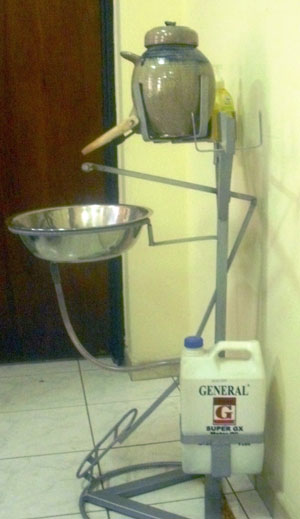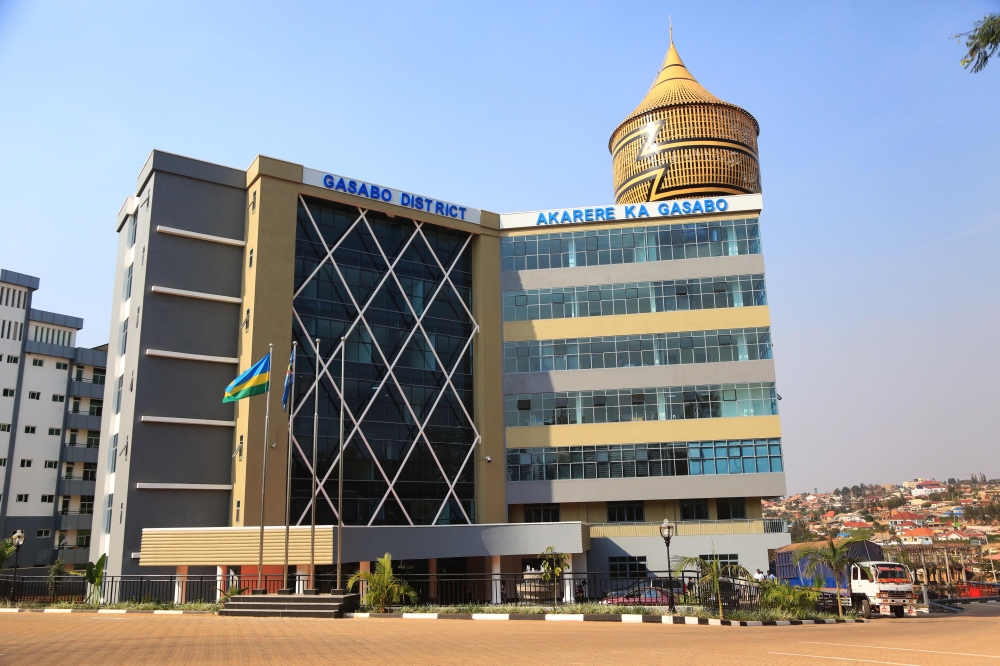The Step and Wash (Kandagira ukarabe), is a simple technology that reduces the rate of disease infection and saves millions of Francs during the treatment of some diseases. ‘Step and Wash’ is a simple hand washing equipment where a small jar or container with clean water is positioned at the top and connected to a peddle that exerts pressure open the flow of water from the container.


The Step and Wash (Kandagira ukarabe), is a simple technology that reduces the rate of disease infection and saves millions of Francs during the treatment of some diseases.
‘Step and Wash’ is a simple hand washing equipment where a small jar or container with clean water is positioned at the top and connected to a peddle that exerts pressure open the flow of water from the container. At the base of the equipment, is an empty jeryycan connected to a sink by a plastic or rubber pipe that collects dirty water after washing hands. The dirty water is easily disposed off when full.
Less sophisticated ‘Step and Wash’ designs found in rural areas, only has a rope tied to a container (usually a small cut-open jerrycan) that connects to a wooden peddle on the ground. When stepped on, the rope tilts the container downwards to wash hands. Dirty water usually flows into a drainage or big bucket.
The design behind of this simple technology ensures that those washing hands do not touch the contaminated handle of the jerrycan. A bar of soap is positioned next to it.
John Kabera, a craftsman who makes these equipment said the technology was initiated by local people in the Northern Province.
"It’s affordable for both households and institutions. I am glad that many Rwandans have enthusiastically embraced this hygienic and simple technology,” Kabera said.
Joseph Katabarwa, in charge of Environmental Health and Food Safety at the Ministry of Health says that the ‘Step and Wash’ is widely used across the country in households, restaurants and institutions.
"We have a detailed plan to teach a number of craftsmen in all districts the technique so that they can make several for the population,” Katabarwa said.
Ends




